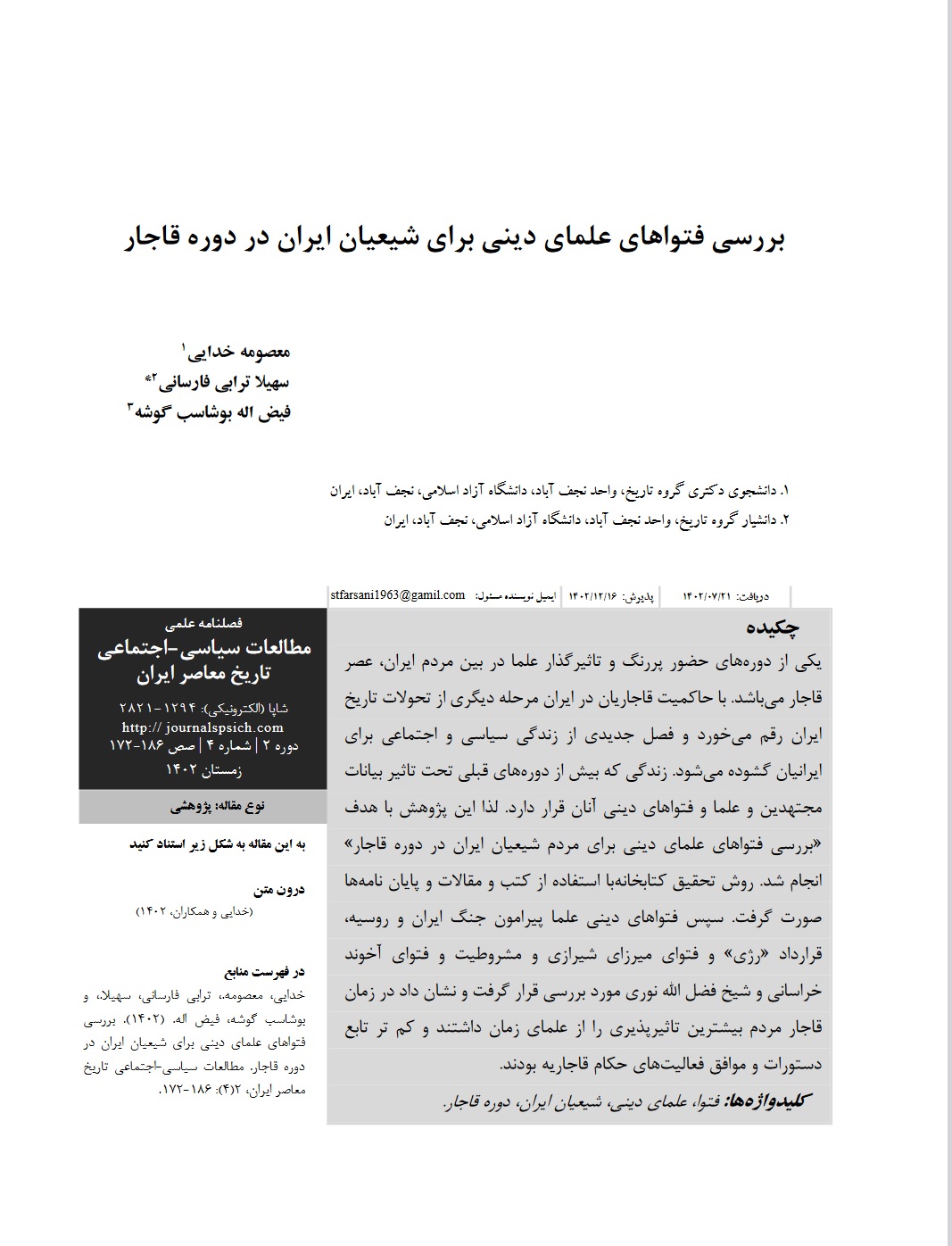Examining religious scholars' fatwas for Iranian Shiites during the Qajar period
Keywords:
Fatwa, religious scholars, Iranian Shiites, Qajar periodAbstract
One of the periods of prominent and influential presence of scholars among the people of Iran is the Qajar era. With the rule of the Qajars in Iran, another stage of developments in Iran's history will take place and a new chapter of political and social life will be opened for Iranians. A life that is more influenced by the statements of mujtahids and scholars and their religious fatwas than in previous periods. Therefore, this research was carried out with the aim of "examining the fatwas of religious scholars for the Shiite people of Iran during the Qajar period". The library research method was done using books, articles and theses. Then, the religious fatwas of the scholars regarding the war between Iran and Russia, the "Reghi" contract, the fatwa of Mirza Shirazi, and the constitutionalism, and the fatwa of Akhund Khorasani and Sheikh Fazlullah Nouri were examined and it showed that during the Qajar era, people were most influenced by the scholars of the time and less so. They obeyed the orders and agreed to the activities of the Qajar rulers.
Downloads








